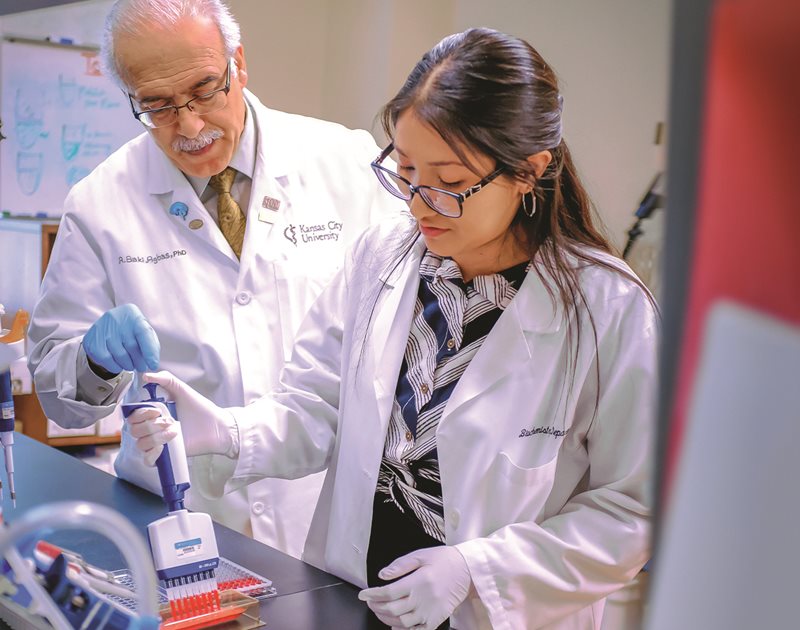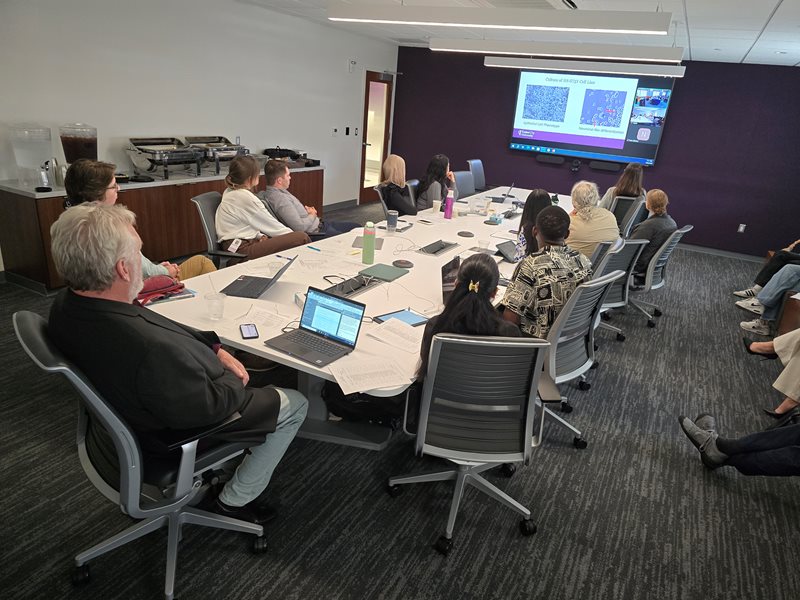Summer Student Research Fellowship
The Summer Student Research Fellowship (SSRF) is an eight-week summer experience providing College of Osteopathic Medicine (COM) and College of Dental Medicine (CDM) students an opportunity to work with accomplished faculty researchers within established research endeavors.
Background and Objectives
 The fellowship program began in 2002 and since that time has continued to help students enhance their knowledge of research in order to become more skilled practicing doctors.
The fellowship program began in 2002 and since that time has continued to help students enhance their knowledge of research in order to become more skilled practicing doctors.
The three main objectives of the SSRF program are to: train medical and dental students to conduct research; provide research faculty the opportunity to mentor students while the students conduct their own research projects; and provide students the opportunity to present papers at national conferences and publish manuscripts in peer-reviewed research journals.
Since the number of available residencies throughout the U.S. is now shared by both osteopathic and allopathic students, the SSRF program provides additional skills needed to keep students competitive for the limited number of residency positions and gives COM students an edge in attracting a residency.
About the SSRF Program
 Requirements include completing oral presentations and submitting a formal written report on the research outcomes. Students and faculty are expected to disseminate the results of the research at the annual KCU Research Symposium, and at local, regional and national meetings and through publications.
Requirements include completing oral presentations and submitting a formal written report on the research outcomes. Students and faculty are expected to disseminate the results of the research at the annual KCU Research Symposium, and at local, regional and national meetings and through publications.
Students work with faculty mentors to develop a proposal for the research activity that will be conducted during the summer. The student’s proposal is then evaluated by a review committee consisting of a non-competing research faculty member and select members of the research committee. Each application is ranked according to the elements of significance, design and methodology, research experience of the fellow, environment for success and the professional appearance of the proposal and application. Once the student has been successfully awarded the Summer Student Research Fellowship, fellowship requirements are defined prior to signing an acceptance agreement.
For more information about applying for the fellowship, email [email protected].
“I was a chemist and my undergrad program was very much geared toward graduate school. I am one of the few members of my group of friends who decided to go onto medical school after graduation. The summer research program got me thinking, why don’t I try to do both?” - Mahan Hadjian, COM 2026. Read more.
_20240814192103_0.png)